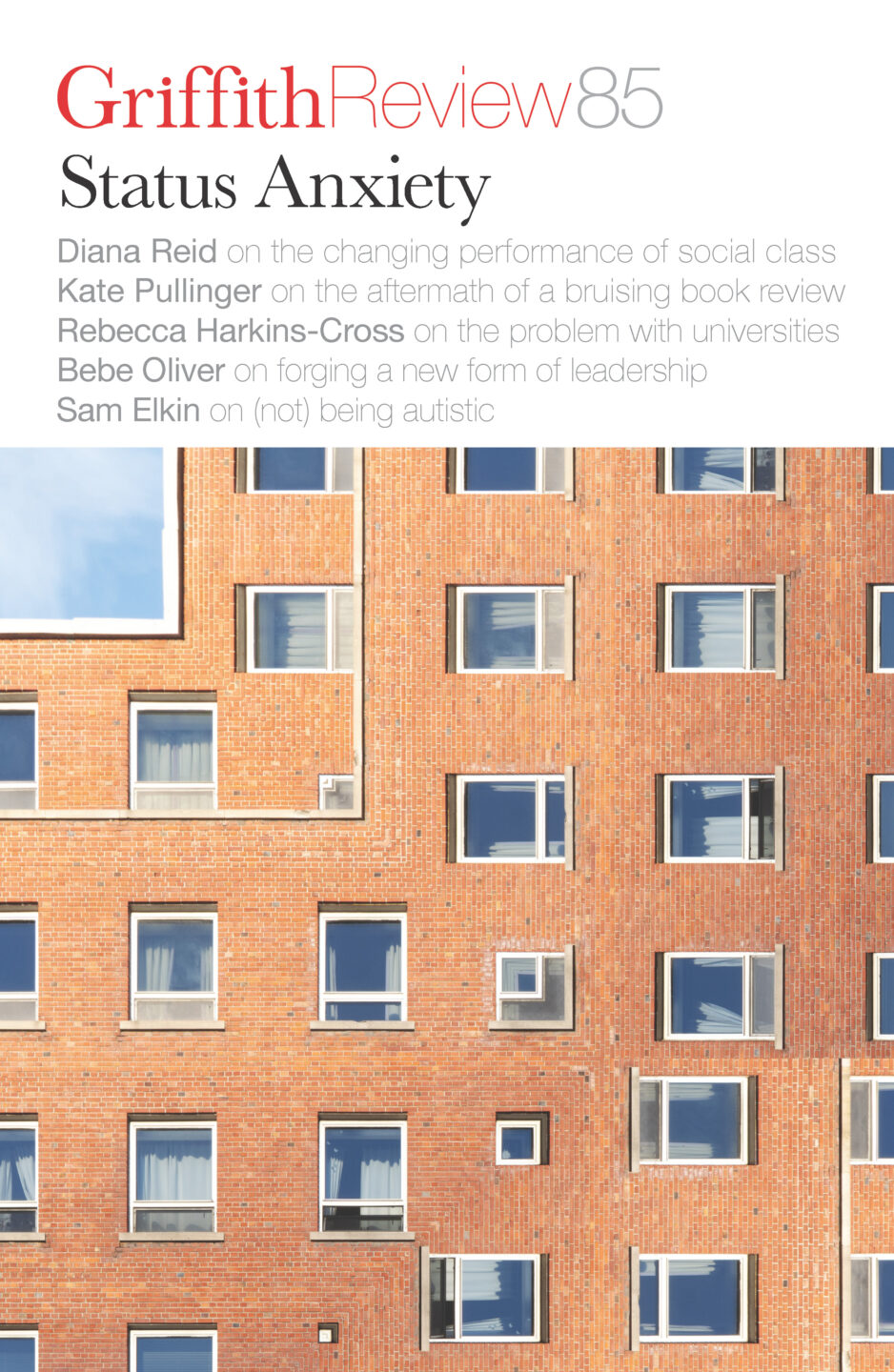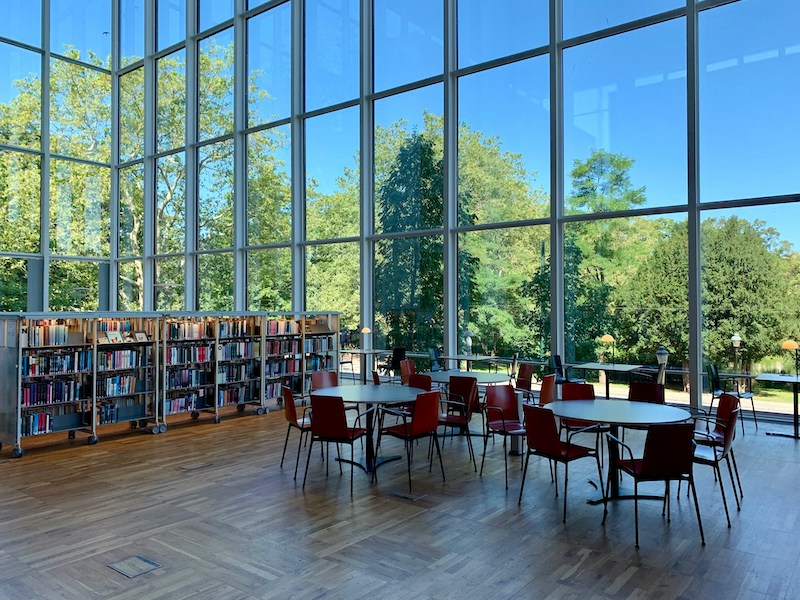Featured in

- Published 20240806
- ISBN: 978-1-922212-98-6
- Extent: 216pp
- Paperback, ePUB, PDF


Already a subscriber? Sign in here
If you are an educator or student wishing to access content for study purposes please contact us at griffithreview@griffith.edu.au
Share article
More from author

Working body
We are taught to fear visible improvement. We are taught, passively and explicitly, to be ashamed. It is bad to look strong and muscular: our figures should not have a noticeable presence; they should not occupy too much space.
More from this edition

The great divide
In ConversationIn the ’80s, and maybe the early ’90s, fashion was a political statement just like art was…and real art wasn’t about selling out or succeeding in a mainstream context; it was the opposite. The whole idea was that you didn’t want to conform. Anyone who was trying to make money off your art or helping you make money was corrupt or compromised. The last thing you did as an artist or a writer in the ’80s was self-publicise – it was so naff, it wasn’t done. Street cred was what mattered. And I’ve been watching, with social media and the internet, this 180-degree shift over the last few decades.

The inspirations of radical nostalgia
Non-fictionEnvironmentalism, like history, is a civic discourse that critically engages with change in the world, contemplates the nature of limits and challenges ahistorical self-absorption. Like all good historians, environmentalists create recognition that the structures and conditions of today are not natural, inevitable or preordained but thoroughly contingent. The study of history and ecologically motivated advocacy also both demand reasoned scepticism towards the ideological claims of the powerful.

High life
FictionWe’ve just finished one of the longest and hardest shifts of the year, and we are too tired to leave the building. It’s Christmas Eve, a 35-degree night, and we survived three dinner seatings while being two people down. We also all worked a double, and our staff meal was the butt ends of bread choked down with blood-temperature water while polishing cutlery. Every single person we served was tired, stressed, sick of spending money and not looking forward to seeing their in-laws. They also all wanted dressing on the side, no garlic and everything gluten free, but to also have multiple serves of the pasta of the day.